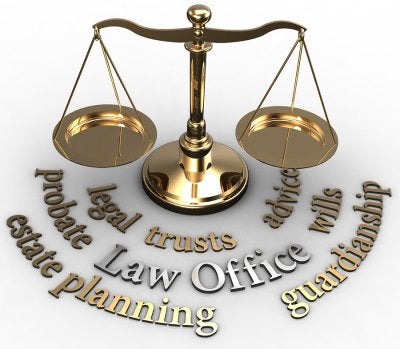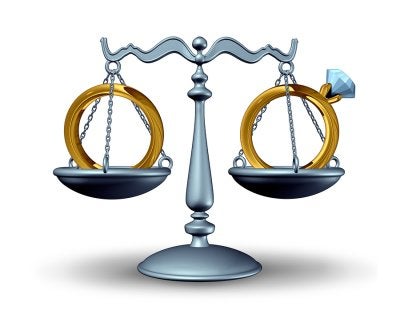-
What Is the Role of an Executor In Probate?
To ensure that your family is adequately protected after your passing, it’s important that you speak with a probate law attorney. As you and your lawyer discuss your will , you will need to decide who to name as your executor; that individual whom you trust to carry out the terms of your will. The Woodlands probate law attorney, Andrew J. Bolton, will gladly discuss the role of executors in further detail.
In short, after a person dies, an executor must organize and wrap up the deceased’s affairs. This involves settling debts, preserving property, distributing inheritance, and taking care of various legal matters. An executor need not necessarily have to be a financial or legal expert, but can be a trusted family member. If you have a will, the executor’s primary job will be to follow the directions laid out in your will. If an individual does not name an executor before passing away, the court will appoint one.

-
Testifying In Divorce Court
When a party is required to give testimony in divorce court it is usually because there’s an argument over one of two questions. The first is child custody, and the second concerns property division.
If you listen to your lawyer, you often will hear the same piece of advice given about any type of courtroom testimony. It usually goes as follows: “Answer the question given to you, and only the question, do not elaborate.” An analogy: Only a little water will clean you up nicely–too much of it and you are likely to drown. Lawyers do understand that there’s a huge temptation to give the full story in response to a single question, but the more you speak the more ammunition you may give your opponent. To summarize, why assist the opposing lawyer in looking good? Keep it short!
Second, if you have made a huge mistake in life, do not volunteer it, but simply fess-up when asked. Trust me, if you’ve screwed up royally, the opposing lawyer has a witness who will remind the Court, and everyone else, what you did. It is always easier if you are the one to do it first, not in a dramatic way, but merely as an acknowledgement of human frailty. In short, if you are seeking custody and have had a drug problem, it will hurt you, and perhaps it should. But lying about it only to have a cop get on the stand afterwards, and talk about your long rap sheet will do much worse for you than simply admitting the problem yourself.
Third, never ever say on the witness stand: “You can’t prove it!” Or perhaps, “It’s my word against his/her’s.” The translation of these words to the Judge is: “Heck yes I did it Judge! But I’m not going to tell you that here!” The result of such testimony is the same as an admission of guilt, only worse.
Finally, always adhere to this advice: If you don’t know the answer to a question, then say that you don’t know–don’t speculate or guess! This advice applies even to things that you should know! Speculation gives the opposing party a chance to show the Judge that your testimony is unreliable. For example, you are arguing over custody of your third grade daughter and the opposing lawyers asks, “who’s your child’s homeroom teacher?” If you don’t know then say it; don’t blurt out “Smith!” Yes, not knowing hurts but judges understand that lawyers’ cross-examination questions are intended to hurt. In this scenario, your own lawyer might well come back and say “Well he doesn’t know the homeroom teacher, but he knows the names of the gym teacher, principals, ARD advisors, and every physician she’s ever been to!” That’s an ideal recovery to a missed question. So the underlying lesson to be learned here is: be prepared! Proper Prior Preparation Permits Peak Performance!
-
Breaking Down Myths About Wills
Putting together a will is one of the most important things you can do for your family members. A clear will can make your wishes known–and enforceable–in the event of your death. This reduces the likelihood of a lengthy legal struggle among your heirs. Andrew J. Bolton, Esq. , a probate law attorney in The Woodlands, can help you organize your will and ensure that your loved ones are taken care of after you’re gone. Before you start work on your will, it’s important you understand the truth behind a few persistent myths.

Wills take years to get settled
You’ve likely seen stories in the news about long, costly legal battles over inheritances. Though some large and complex estates may take years before they’re fully settled, this is far from the norm. Most of the time, it only takes a few months for inheritances to be distributed. The clearer the will, the more quickly the probate process will go.The probate process is costly
After a person dies, property in his or her name must go through the probate process before the property can be transferred to a beneficiary. Some individuals dread the probate process because they think court and legal fees will take up a large portion of the estate. However, court fees and lawyer’s fees often add up to less than a few thousand dollars.The state gets the money if no will is in place
Perhaps the most common misconception is that the state automatically owns the property of a person if he or she dies with no valid will in effect. In fact, there are several legal contingencies that exist for just such an event. Depending on the family configuration, the money may go to the deceased’s spouse, children, or parents. That having been said, the deceased’s assets actually do go to the state where there are no family members to be found. -
Moving To Texas?
Welcome to Texas! Most newcomers find that, apart from our sometimes cranky weather, Texas is perhaps the best state in which to reside. Texas has low taxes, low regulation, low prices, and one of the country’s easiest probate systems! But to take advantage of our fast and easy probate process, it is often necessary to update your will to obtain the benefits of a Texas probate.
As with most things in the legal arena, there are often certain “magic words” which must be used in order to fast track and simplify the probate of your will. Whether you are young and just starting out, or whether you are closer to retirement than most, a redraft of your will can result in peace of mind–before and after you are gone.
It’s important if you are moving in from another state to seriously consider a will redraft. Although I’m not 100% certain, I hear that a will redraft is much harder after you are gone!
Contact us for an inexpensive review of your will. If one is not needed, we will tell you. If a redraft is in order, then it is the most cost-effective way of gaining peace of mind.
-
What Happens During Probate?
The probate process evaluates wills in order to determine their legal validity. This video explains why you may need a probate attorney near The Woodlands if you have a claim in a will.
A will attorney can advocate on your behalf if you are an intended beneficiary of a will. Especially when a person has diverse assets or multiple beneficiaries, claims in his will may lead to the contesting of it. Contesting a will may extend the probate process as well. When you consult a probate lawyer, you can rest assured that your interests are represented during probate so that you can receive any assets designated for you in a timely manner.
-
The Child Custody Process in Texas
Child custody can be a particularly sensitive topic for a divorcing couple. Because emotions can easily enter into such situations, a parent going through a divorce and custody proceedings may want to contact a law firm near The Woodlands for its experience expertise. A family lawyer can advocate on behalf of a parent to ensure a custody decision that takes into consideration the welfare of the child.

Mediation
In general, individuals divorcing in the state of Texas may be required to participate in child custody mediation. Courts urge couples to decide for themselves the custody arrangements for their children without the need for litigation. A family law attorney can help parents discuss their custody desires amicably and prepare the necessary paperwork to see through these arrangements. A family law expert can also inform couples of their custody options and what regulations come with each custodial choice. Should a couple not come to mutually agreeable terms about child custody, court determination may be the next step in the custody process.Court Determination
If the court becomes responsible for deciding child custody issues, a judge may consider any number of factors before making a determination. Because the child’s welfare is the primary concern, a judge may look over the financial circumstances of each parent to ensure that the child’s basic needs can be looked after in a given home. He might also evaluate the well-being of each parent to see if one adult or the other is physically or emotionally better equipped to have child custody. The wishes of the child may also play a role in a court determination of child custody. Older children may be asked if they have a preference of parent with whom they would like to reside. Other considerations such as the locale of each parent can also help in determining who should receive custody. A family law attorney can help a parent provide the necessary information to allow him or her to best demonstrate parental strengths so that an outcome can be reached which reflects his or her custodial wishes. Once a decision is made by the judge, all parties are legally obligated to abide by it. -
When to Start Estate Planning
The need for estate planning does not depend on the size of your estate. If you have any possessions, monetary or otherwise, that you would like to bequeath to friends, family members, or charitable organizations, you may want to speak with a will attorney in The Woodlands.
Some people may not think of estate planning until they have reached significant life milestones such as getting married, having a child, or buying a home. However, these events typically happen after an individual has already amassed significant assets. As soon as you accumulate possessions of financial or sentimental worth, consult a law firm that specializes in wills and trusts. A will lawyer can explain the differences between these documents and help you decide which one is right for your needs. When you go through a law firm for your estate planning needs, you can also better guarantee that your wishes for the division of your assets will be carried out as you wish.

-
How to Choose a Divorce Attorney
The end of a marriage can affect every part of your life. Aside from the emotional consequences of divorce, you must consider the financial ones as well. As a result, finding the right family law attorney serving The Woodlands is key for your future security and well-being. Because divorce is not an event that many people experience often in their lives, few have significant knowledge about how to choose a divorce attorney. If you are in need of a lawyer, keep these guidelines in mind during the selection process:

Evaluate Your Options
An impeding divorce can be a worrisome situation even under the best of circumstances. You may feel pressed to choose the first attorney that a friend recommends or a commercial suggests, but it is important to exercise patience until you feel wholly comfortable with a particular attorney or law office . With this in mind, you can use resources such as loved ones and media outlets to create a list of potential candidates with whom you would like to discuss your case.Set Up a Consultation
Family law experts often allow for complimentary meetings with prospective clients so that they can learn more about the case. This first appointment may be all the time you have before deciding if you want to use a particular divorce lawyer, so come to each consultation prepared with questions. You should also observe how each attorney interacts with you. Indeed, this lawyer may be a person with whom you must work with for several months or longer. Having a comfortable professional relationship is often critical for an optimal legal outcome.Give the Lawyer the Necessary Facts to Assess the Case
As you consult with each divorce lawyer, you may want to bring up specific circumstances that may impact the details of your divorce. For instance, did you sign a prenuptial agreement with your spouse? You should also tell each attorney if you have children, as the status of your current child custody and child support arrangements could affect the outcome of your divorce. Knowing that your lawyer has a background helping clients with such aspects of their divorces can better ensure that you too can experience a favorable result. In any event, when consulting with an attorney, do not withhold negative information about yourself. Rest assured, if you keep your attorney ignorant of your dirty laundry, your spouse will not keep the opposing attorney similarly in the dark. Your attorney needs to prepare a response to negative information about you – and that’s best done weeks or months in advance of a trial, versus standing in front of the judge. Disclose everything as soon as possible. -
Creating a Will or Trust
Wills and trusts in the Woodlands dictate what happens to a person’s assets and estate after death. While most people refer to an attorney who helps in these situations as a will attorney or a probate lawyer, they are actually called estate-planning attorneys. When someone decides to create a will or a trust, consulting with a lawyer can ensure that he or she achieves certain estate-planning goals.
In this video, an attorney details the many benefits of working with a lawyer during the estate-planning process. As he explains, a lawyer understands the best avenues for allocating assets following death. For example, a lawyer can help explain when a trust or will is the most effective means to allocate assets to family members. Working with an attorney also ensures accurate preparation of documents, so as to ensure smooth probate and estate execution.
-
Answers to Your Questions About Getting Divorced in Texas
Every state has its own laws and regulations governing the divorce process, so someone petitioning for divorce should discuss his or her case with a local divorce lawyer. In Texas, a couple can only petition for divorce if at least one of the spouses has been a resident of the state for a continuous six-month time period. A family law attorney in the Woodlands will also advise the couple that one of the spouses must have been a resident of the county it wishes to file for at least 90 days.

What is the divorce procedure?
Usually, a Texas divorce case begins with one spouse filing an Original Petition for Divorce with the court and then personally serving the papers upon the other spouse. However, the other spouse may also sign a waiver to give up the right to be personally served with the papers. Thereafter, they begin the discovery process. Spouses may also discuss the settlement of their case directly or with the help of an attorney. If the parties cannot agree on all the issues of their divorce case, then the court will likely set a trial date.How long does it take to finalize?
In Texas, it takes a minimum 60 days after the petition is filed for the divorce to become final. As a part of this process, the judge will pronounce the divorce final in open court and sign the divorce decree. If the spouses do not agree, it will likely take around six months to a year to finalize, depending on the complexities of the case.How is property divided?
A Texas family law firm understands that courts initially presume that all property earned or acquired by either spouse during the marriage becomes community property. Separate property consists of property, brought into the marriage, and may also refer to any property acquired by just one spouse as a gift or through inheritance. Even though courts usually split property equally, factors such as unequal earning power and fault in the marital relationship can influence how a court divides the property.
RECENT POSTS
categories
- Uncategorized
- Estate Planning
- Probate
- Family Law
- Drafting a Will
- Divorce Lawyer
- Texas Family Law
- Divorce
- Real Estate
- Probate Court
- Child Custody
- Andrew J. Bolton
- Esq.
- Adoption
- Law Office of Andrew J. Bolton
- Wills
- Executor
- Infographic
- Guardianship
- Trusts
- Contested Divorce
- Child Support
- Attorney
- Living Wills
- Contested Will
- Prenuptial
- Probate Bond
- Heir Apparent
- Legacy Contact
- Living Trusts
- legal guardian
- Legal Disputes
- property rules
- Common Law
- Stocks
- Estate Tax
